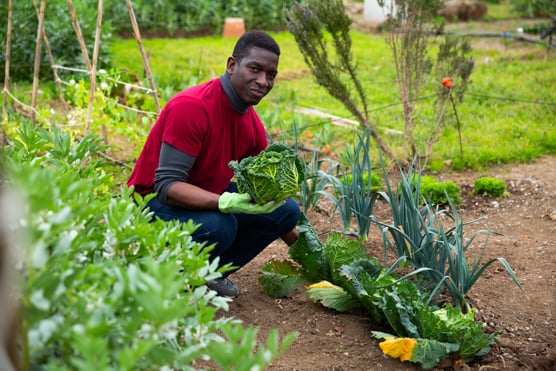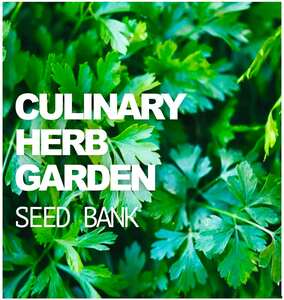Lasting Gardening Practices for an Eco-Friendly Garden
Lasting Gardening Practices for an Eco-Friendly Garden
Blog Article
Recognizing the Different Types of Gardening and Exactly How They Add to a Much Healthier Lifestyle and Setting

Advantages of Veggie Gardening
Several individuals are progressively recognizing the myriad advantages of vegetable gardening as an essential component of a much healthier way of life. Taking part in veggie horticulture supplies various physical health and wellness advantages, consisting of increased exercise, which enhances cardio wellness and advertises general fitness. The act of planting, weeding, and harvesting calls for movement and can aid battle inactive actions, contributing to weight monitoring and improved muscle tone.
In addition, cultivating one's very own veggies substantially boosts dietary top quality. Homegrown fruit and vegetables is usually fresher and more nutrient-dense contrasted to store-bought alternatives, as it can be eaten quickly after harvest. This access urges a higher consumption of fruits and vegetables, which are necessary for stopping chronic diseases.
Additionally, vegetable horticulture promotes mental wellness by giving a restorative outlet for stress alleviation and leisure. The act of often tending to plants can be meditative, allowing individuals to link with nature and run away the stress of life. The sustainable practice of expanding one's own food reduces reliance on industrial farming, adding to ecological conservation and promoting biodiversity. Collectively, these advantages underscore the relevance of vegetable horticulture as a cornerstone of a healthier way of life.
Discovering Blossom Gardening

Along with aesthetic benefits, flower gardening sustains neighborhood ecological communities. Lots of flowering plants draw in pollinators, such as and butterflies, which are critical for preserving biodiversity. The existence of varied vegetation can additionally improve dirt health and wellness, as various plants contribute to nutrition biking and boost soil structure.
Additionally, blossoms can play a substantial function in promoting lasting techniques. Many garden enthusiasts go with indigenous or drought-resistant species, which require less water and very little chemical inputs. This technique not only benefits the atmosphere yet additionally encourages liable gardening routines.
Eventually, blossom horticulture acts as an essential element of a holistic gardening approach. Gardening. By cultivating elegance and supporting neighborhood environments, it balances with veggie horticulture and highlights the importance of supporting both our physical and psychological well-being through nature
Container Horticulture Benefits
Container gardening deals various advantages that make it an enticing alternative for both novice and skilled garden enthusiasts. One of the primary advantages is its adaptability; containers can be put on outdoor patios, terraces, or perhaps inside, enabling gardening in areas with minimal ground accessibility. This flexibility makes it possible for individuals in metropolitan environments or those with tiny lawns to grow plants properly.
Furthermore, container horticulture supplies enhanced control over soil high quality and dampness levels. Garden enthusiasts can pick specific dirt mixes to optimize plant health and wellness and mitigate concerns like weeds and parasites. The mobility of containers likewise permits easy relocation to optimize sunlight direct exposure or secure plants from severe climate.
Furthermore, container yards can be cosmetically pleasing, offering an opportunity for creative thinking in design. Gardening. They can work as decorative aspects that improve outdoor or indoor spaces while advertising biodiversity by attracting pollinators
Last but not least, container gardening can add to a much healthier way of living by motivating exercise, as it frequently includes training, growing, and keeping plants. In general, the advantages of container horticulture make it an accessible and fulfilling important source practice for those seeking to boost their way of living and environment.
The Increase of Upright Horticulture
As metropolitan areas end up being increasingly crowded, the fad of vertical horticulture has taken off, allowing individuals to maximize their horticulture capacity in minimal areas. This innovative strategy involves expanding plants in vertical frameworks, such as wall-mounted planters, trellises, or specialized vertical yard systems. The charm of upright horticulture lies not only in its reliable use room but likewise in its aesthetic payment to city environments, changing bare walls right into lush green landscapes.
Vertical yards can be set up in homes, balconies, and community rooms, offering a system for expanding a range of plants, including natural herbs, veggies, and decorative our website flowers. This technique motivates biodiversity and can improve air high quality by filtering toxins while promoting a connection to nature in largely populated areas. In addition, vertical gardening uses useful benefits, such as boosted return per square foot, making it an eye-catching choice for metropolitan garden enthusiasts seeking to grow their own food.

Lasting Practices in Horticulture
Embracing sustainable techniques in horticulture is essential for promoting ecological health and making sure the practicality of our natural resources. Sustainable gardening strategies focus on reducing environmental impact, conserving water, and cultivating biodiversity. By implementing practices such as organic horticulture, garden enthusiasts can lessen the use of synthetic plant foods and pesticides, which can harm neighborhood ecosystems.
Companion growing is one more effective lasting technique, where particular plants are expanded together to enhance growth and deter bugs normally. Additionally, using native plants in landscape design sustains local wild animals and calls for less maintenance, as they are inherently adapted to the neighborhood environment and soil problems.
Water preservation methods, such as rainwater harvesting and drip irrigation, aid to efficiently handle water sources, hence decreasing waste. Moreover, composting organic waste not just enriches the dirt yet additionally reduces landfill payments, advertising a circular economic situation.
Last but not least, practicing plant turning and cover chopping improves dirt health and wellness and minimizes the risk of pest invasions. By integrating these lasting techniques, gardeners can produce durable ecological communities that add to a much healthier lifestyle while safeguarding the environment for future generations.
Conclusion

In conclusion, the diverse approaches of horticulture, including veggie, flower, container, and upright gardening, jointly advertise a much healthier way of life and boost navigate to this website environmental sustainability. Each kind supplies distinct advantages, from offering fresh fruit and vegetables and attracting pollinators to maximizing limited areas and motivating biodiversity. By cultivating lasting techniques, these horticulture comes close to not only add to private health however additionally sustain more comprehensive ecological preservation efforts, inevitably reducing reliance on industrial farming and improving area durability.
Report this page